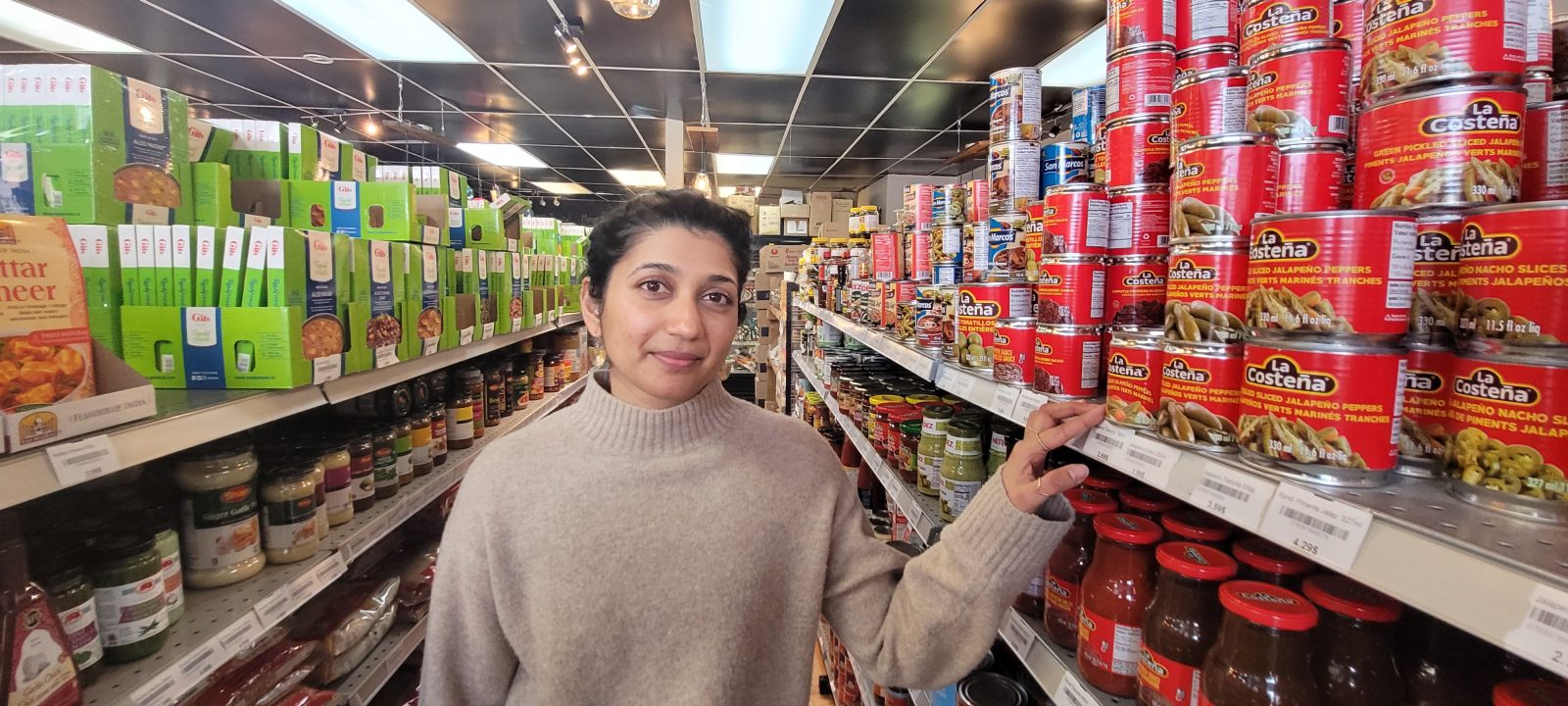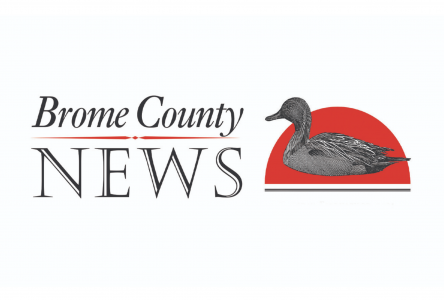Initial demand higher than supply
By Lawrence Belanger
Local Journalism Initiative
Residents of Sherbrooke and the surrounding area have a new option to reduce food waste and save money, as Too Good to Go rolls out in the Sherbrooke region. Nicolas Dot, a communications specialist for the mobile application, sat down with The Record at Lennoxville’s Bekkah’s Bakery to talk about the app, what it’s for, and how it works. “The concept of Too Good to Go is to be a simple and flexible solution both from the consumer’s and business’s perspective,” explains Dot.
According to him, Too Good to Go seeks to reduce food waste by providing an economical way for food businesses to avoid throwing away unsold food that is also environmentally conscious and socially beneficial. Users of the app can download it to their phone, and view a list of available food from businesses around Sherbrooke.
The app provides an economic benefit to businesses by turning a loss (throwing out edible food that no one has bought) into a revenue stream, an environmental benefit by preventing food waste from going into the garbage, and a social benefit by adding more low-cost food options for people.
First launched in France and Denmark in 2016, Too Good To Go rolled out in Canada initially in the Toronto region in 2021, and then expanded to Quebec with Montreal and Quebec City. Sherbrooke is the first market outside of those two metropolitan centers, and Dot says that this region’s launch has been one of the most exciting in his time at the company.
“I feel like this is one of the market launches where we…received the greatest demand before [actually] launching,” he says, adding that around 40 food businesses in Sherbrooke had already signed up to sell their unsold food. Dot feels that local businesses in the region embraced not just the economic pillar, but the environmental and social ones as well.
“The environmental impact is something that is top of mind for a lot of businesses across Quebec,” explains Dot. “They don’t take pleasure in throwing away their baked goods,” he adds, while talking about the “great reception” they’ve experienced with the Sherbrooke business community.
“What really struck the team…on the field was [a] sense of social health,” with food businesses in this region keen to sign up in order to foster a “neighbourhood feel” with their customers and in the community.
“Compared to other markets,” Dot says they’ve found that businesses in Sherbrooke were recommending others to the company, helping reach beyond those that their sales team had found and contacted. “That sense of help is very strong here,” remarks Dot.
Rebekkah Gallagher, the owner of Bekkah’s Bakery on Queen Street, which has been part of the initial wave of food businesses contacted by the app’s sale team to join the app’s rollout in the region, uses the app to sell goods that she normally would have to throw away.
“I like the idea of finding another space for my food that is either almost at its due date [or not possible to sell].” For example, when she has leftover cake scraps and frosting, “I throw them in a soup container,” which Gallagher refers to as a sort of “cake pop” treat.
“I can’t sell that,” explains Gallagher, since it’s not a specific product or something she sets out to make. Like most meals on the app, a surprise bag from Bekkah’s will vary from day to day or even time of day. If she has too many cinnamon rolls that day, the bag will have those. If it’s a loaf of bread that will go stale soon, it’s that.
Dot explains that for simplicity, food on the app is labelled a “meal”, regardless of its potential contents.
Sarah Almady, manager and owner of Marché 5e Saison in Lennoxville, uses the application to sell canned and boxed goods that are close to the best buy date.
Unlike Gallagher, who says she was on board from the start, Almady was initially hesitant to sign up when first contacted, as she was concerned about how the process would work. “I’ve seen some of these apps [before],” explains Almady. “Some of them require a space in the store for a fridge to put everything, and then the customer just comes and picks it up themselves,” but Too Good to Go works differently.
Gallagher and Almady each have access to a business version of the application, where they can add or reduce the amount of available surprise bags on the main app. Consumers pay for the bag through the app, and then simply pick up their bag at the arranged time. In order to finance the app’s development and operations, Too Good to Go takes a part of each sale as a commission, and businesses pay a yearly subscription to the company.
“It’s really easy,” says Almady. “We can set the pickup time, and we choose what goes in the box.” Gallagher says there was no difficulty integrating the app into her business too. Each day automatically generates one surprise bag, “I just have to press the minus or plus button on the app on my phone,” and the app updates automatically. “I’m happy with the app,” concludes Gallagher.
“Almost 870 million people on this planet are going to bed hungry,” says Dot. Because of this, he feels grateful to be working on an app with a broader mission besides profit.
Since surprise bags are lower than a business’ normal prices, Too Good to Go provides an opportunity for people on a tight budget to enjoy local goods that they might not normally be able to afford.
Gallagher, who is aware that her prices are more than mass-produced baked goods available at the grocery store, recalls how one customer was “super happy to be able to get a bag,” as they usually couldn’t afford the higher cost.
Environmentally, food waste directly fills up landfills, while indirectly driving up greenhouse gas emissions, and increasing water use. Across Quebec, Dot says Too Good to Go has saved 260,000 meals that would have otherwise been thrown out.
Lennoxville businesses on the app include Brad’s Gourmet, Bekkah’s and 5e Saison. Dot encourages people to check back frequently, as their Montreal-based team can add new businesses to the app within 24 hours of an application. Besides 12 cities across Canada, the app is available in 17 countries worldwide.


